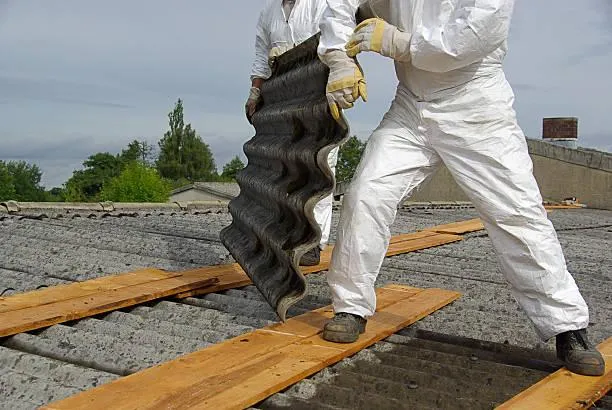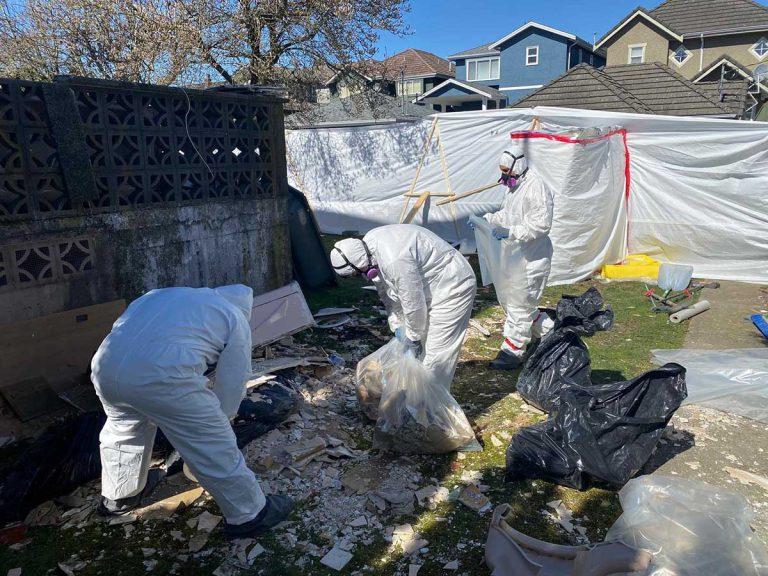
Asbestos Regulations in Colorado: Denver & Surrounding Areas
Asbestos regulations in Colorado are designed to protect public health and the environment by ensuring proper handling, testing, and removal of asbestos-containing materials. In Denver and surrounding areas, strict state and federal guidelines require certified professionals to perform inspections, air monitoring, and abatement to prevent hazardous exposure. Whether for residential renovations or large-scale commercial projects, compliance with these regulations helps homeowners, contractors, and businesses avoid legal penalties while maintaining safe, healthy indoor environments.
What Are the Key Asbestos Regulations in Colorado Homes?
Colorado asbestos regulations are primarily based on CDPHE Regulation 8, Part B, which requires mandatory inspections, certified contractor removal, and proper waste disposal. These rules work alongside the EPA’s NESHAP standards and OSHA worker safety guidelines, especially during residential renovations and demolitions. For instance, if a renovation project disturbs more than 32 square feet of materials that could contain asbestos, an inspection must be scheduled before work begins.
Who Oversees Asbestos Compliance in Colorado?
Asbestos compliance in Colorado is overseen by three main agencies. The Colorado Department of Public Health and Environment (CDPHE) enforces Regulation 8, certifies abatement contractors, and oversees proper disposal. The Environmental Protection Agency (EPA) regulates hazardous air pollutants and demolition requirements. The Occupational Safety and Health Administration (OSHA) sets workplace safety standards during asbestos removal. Together, these agencies ensure asbestos inspections, removals, and disposals are performed safely across Denver and surrounding areas.
What Is CDPHE Regulation 8 and Why Does It Matter?
Regulation 8, Part B, is central to asbestos compliance in Colorado. It requires asbestos inspections before any renovation or demolition, mandates the use of CDPHE-certified contractors for abatement, and enforces safe disposal at approved asbestos waste facilities. For example, if a homeowner in Aurora or Boulder plans to remove more than 32 square feet of popcorn ceiling, Regulation 8 requires inspection and proper handling to avoid legal penalties.
What Happens If You Don’t Follow Asbestos Laws in Colorado?
Failure to follow asbestos laws in Colorado can lead to serious consequences. Property owners may face immediate stop-work orders, mandatory corrective actions, and fines of up to $25,000 per day. In cities such as Lakewood, Westminster, and Arvada, homeowners risk both costly penalties and required cleanup if they proceed with renovation projects without inspections.
When Are Asbestos Inspections Required in Colorado?
Asbestos inspections are required in several scenarios, including renovations disturbing more than 32 square feet of material, the removal of 10 or more linear feet of pipe insulation, and the demolition of entire structures regardless of size. Certified asbestos inspectors in Denver, Thornton, and Broomfield must carry out these inspections before any project begins.
How Is Asbestos Tested in Colorado Homes?
Testing begins with a certified inspector collecting samples from materials such as ceilings, flooring, or insulation. These samples are then sent to accredited laboratories for analysis using polarized light microscopy (PLM) or transmission electron microscopy (TEM). The results provide confirmation of asbestos presence and recommendations for safe handling and removal.
How Do You Choose a Certified Asbestos Inspector in Colorado?
Choosing the right inspector involves verifying CDPHE certification, checking for EPA accreditation, confirming liability insurance, and reviewing local references. Certified inspectors in Commerce City, Longmont, and Boulder ensure accurate testing and provide the documentation needed for both compliance and permitting.
What Is the Role of an Asbestos Project Manager?
An asbestos project manager handles every stage of compliance. This includes securing permits and notifications, coordinating inspections and abatement, and maintaining the records necessary for clearance and disposal. Hiring a project manager in Denver and surrounding areas helps property owners avoid delays and ensures projects meet legal standards.
How Do Certified Contractors Remove Asbestos Safely?
Licensed asbestos abatement contractors use strict safety protocols during removal. They set up containment zones with negative air pressure, carefully remove asbestos materials, and monitor fiber levels throughout the process. In Colorado, only CDPHE-certified contractors are legally permitted to perform asbestos removal.
Where Is Asbestos Waste Disposed of in Colorado?
Asbestos waste in Colorado must be disposed of at approved facilities. Options include the Platteville Landfill, which accepts friable asbestos in sealed containers, the Denver Metro Waste Facility, which takes non-friable asbestos containing materials in double bags, and the Adams County Landfill, which handles mixed construction debris. Every load must be tracked with a disposal manifest to prevent illegal dumping.
What Are the Health Risks of Asbestos Exposure?
Exposure to asbestos fibers can cause serious illnesses such as mesothelioma, asbestosis, and lung cancer. These risks exist regardless of whether exposure occurs in Aurora, Arvada, or Lakewood, making proper inspections and testing essential before starting renovation projects.
Where Is Asbestos Commonly Found in Colorado Homes?
Many homes in Colorado still contain asbestos, particularly those built before 1980. Common materials include popcorn ceilings, vinyl floor tiles and adhesives, pipe insulation often found in basements, and exterior siding or wall joints. Even newer homes in Thornton, Westminster, and Broomfield may contain asbestos from imported or leftover materials.
Is Asbestos Testing Required for Permits in Colorado?
Yes, most Colorado counties require asbestos surveys before issuing building permits for renovations or demolitions. Cities like Denver, Boulder, and Arapahoe mandate clearance documentation to ensure safe handling of asbestos before construction work can begin.
Why Choose Local Experts for Asbestos Services in Colorado?
Local asbestos professionals in the Denver Metro area and surrounding towns understand county permitting rules, know which disposal facilities are approved, and can respond quickly to inspection needs. Companies like My Asbestos Guy Colorado provide certified inspection, testing, project management, and compliance oversight for homeowners across Denver, Thornton, Broomfield, Commerce City, Boulder, Arvada, Longmont, Aurora, Lakewood, Westminster, and nearby areas.
Final Thought
Asbestos compliance in Colorado is not just about following regulations—it’s about protecting your home, family, and community. Whether you’re renovating, demolishing, or simply planning future projects, scheduling an asbestos inspection with a certified professional ensures safety and prevents costly legal issues. By working with trusted local experts in Denver and surrounding areas, you can move forward with confidence knowing your property is up to code.

Do I need an asbestos inspection before remodeling my home in Colorado?
Yes. Colorado law requires an asbestos inspection by a certified professional before any renovation or demolition that may disturb asbestos materials.
Can I remove asbestos myself in Colorado?
No. DIY asbestos removal is prohibited. Only CDPHE-licensed abatement contractors are legally allowed to handle asbestos.
How much does asbestos testing cost in Denver and surrounding areas?
On average, asbestos testing costs between $300 and $600 depending on the number of samples and turnaround time for lab results.
Where can asbestos waste be disposed of in Colorado?
Asbestos waste must go to approved facilities like Platteville Landfill or Denver Metro Waste Facility with proper documentation and manifests.
When is the best time to schedule asbestos testing in Colorado?
It’s best to schedule testing before applying for renovation or demolition permits to avoid project delays.
Address: 13340 Harrison Street, Thornton, CO 80241
Phone: 720-571-8481
Email: [email protected]
